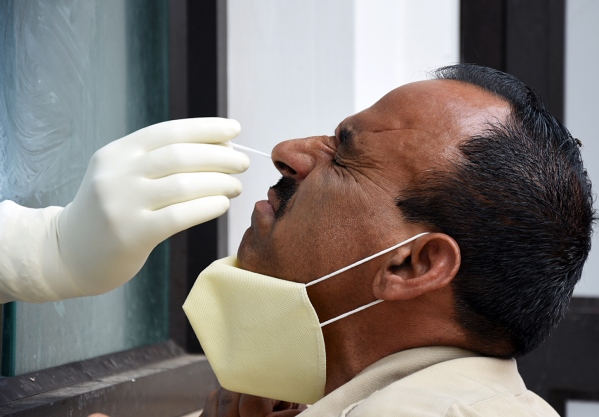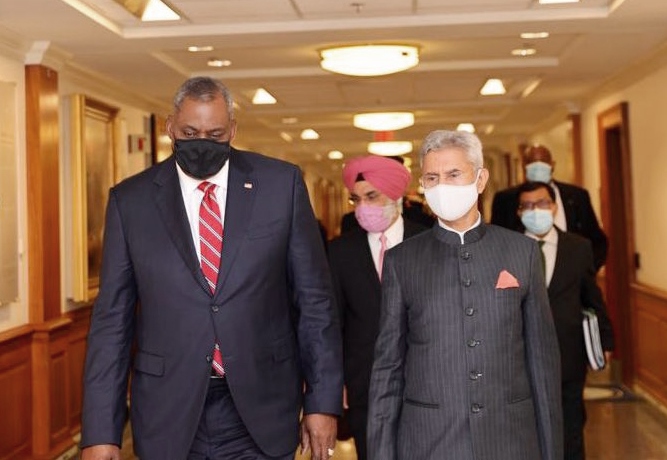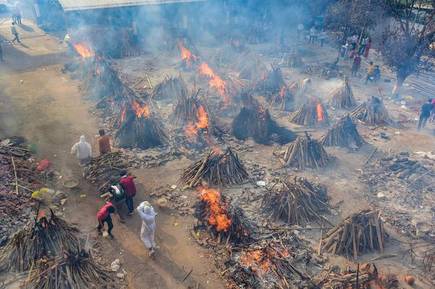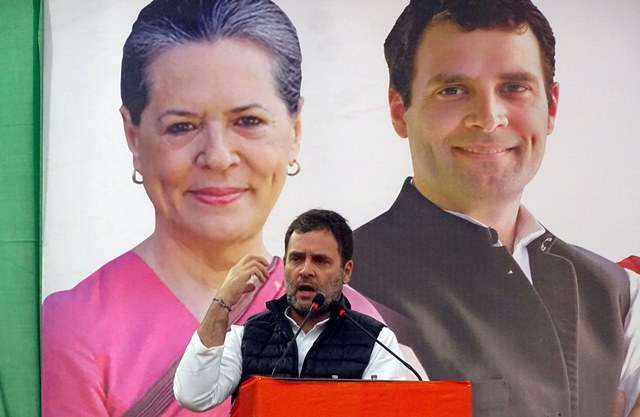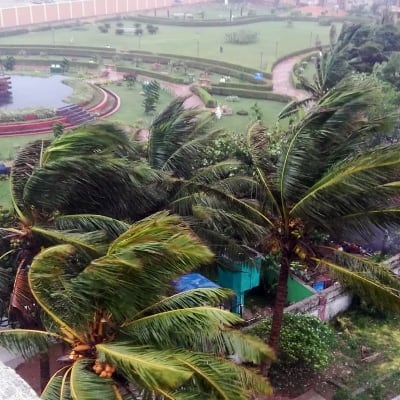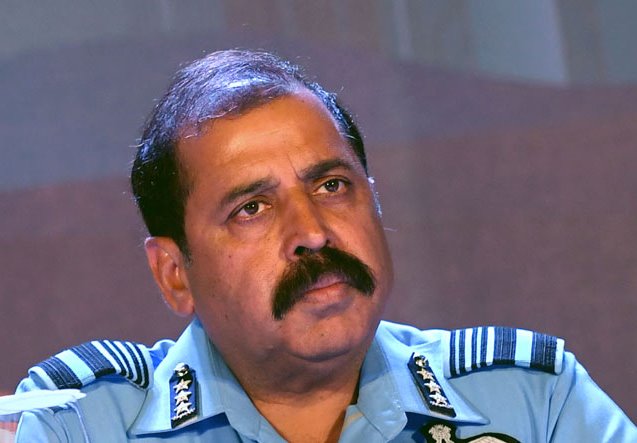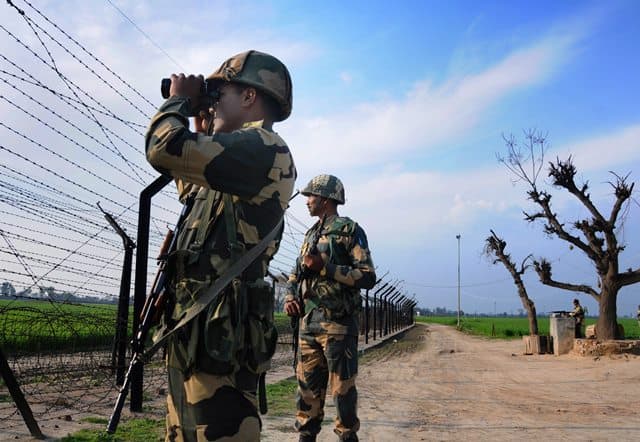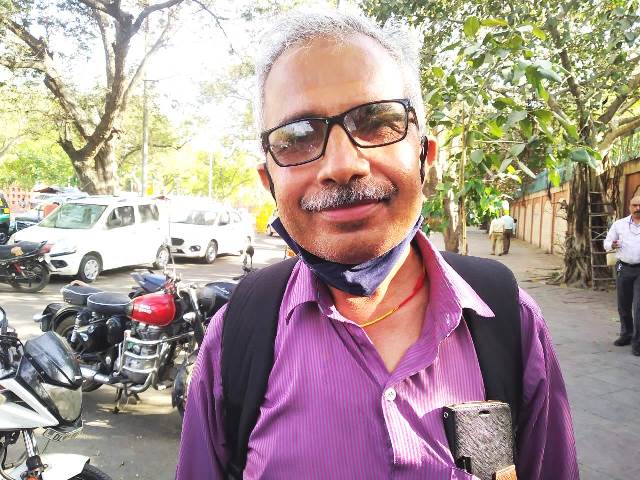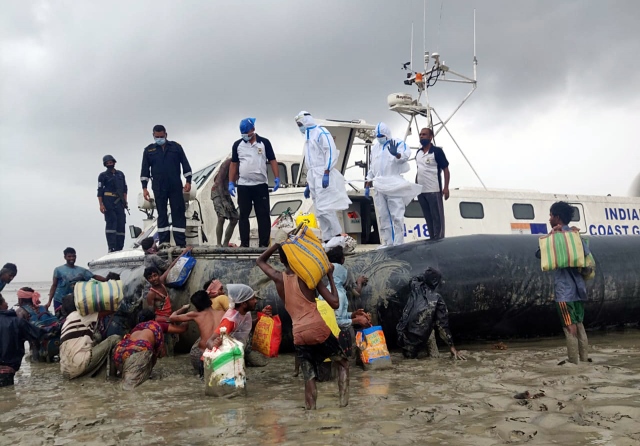Never since India winning Independence in 1947 has the country’s global image, an obsession of sorts for the present dispensation in New Delhi till the deadly second wave of Covid attributed to a mutant virus variant that appeared some three months ago, taken such a beating.
Leading American and European newspapers and magazines have published shocking stories and photos of bathers in the holy river Ganga wading through corpses as feral dogs and birds feast on them. About 79 per cent of the Ganga basin is in India, the rest is in Nepal and Bangladesh. The river in India runs through 11 states, including Uttar Pradesh, Bihar and West Bengal. To ensure that corpses from UP and Bihar do not flow down the Ganga into West Bengal, the state administration has told local boatmen and fishermen to keep a vigil.
What also has not escaped the attention of the foreign media is mass funerals on a daily basis in Uttar Pradesh and Bihar with many cases of bodies being buried at sandy river beaches as well bodies being abandoned at hurriedly opened graveyards. A Kanpur based reporter told BBC that only in the circumstances when the families don’t have money to perform the last rites under guidance of Brahmin priests do they take the extreme step of pushing dead bodies in the Ganga or just leaving these somewhere.
The world too has seen the heartbreaking photo of a man in Bihar’s Siwan district carrying his seriously ill father on a wooden handcart to a hospital as he could not find an ambulance. NDTV’s coverage of the death of 38 year old Nabila Sadiq, professor at Jamia Millia University in Delhi to Covid-19 also got world coverage because some of her tweets during her deteriorating health and pleading for an ICU bed laid bare how even people at higher echelons of society are not able to secure timely hospitalisation. When Nabila finally got admission in a hospital after meeting with refusals at three other establishments her lungs were damaged beyond repair. Having lost his wife and then daughter to Covid within 10 days, the 86-year-old Mohammad Sadiq described himself as a “walking corpse”.
What is happening in India over the past three months, specially in terms of high rates of mortality, stands in sharp contrast to the virtual message that Prime Minister Narendra Modi gave to the World Economic Forum conclave at Davos in January. Modi said: “I remember what many… said in February-March-April last year. It was predicted that India would be the most affected country from corona all over the world. It was said there would be a tsunami of corona infections in India, somebody said 700-800 million Indians would get infected while others said 2 million Indians would die… We worked on strengthening the Covid-specific health infrastructure, trained our human resources and used technology massively for testing and tracking of the cases…
“It would not be advisable to judge India’s success with that of another country… Home to 18 per cent of the world population, India has saved humanity from a big disaster by containing Corona effectively.” Modi, as is his wont, didn’t stop at all that was done to arrest the spread of the disease in the first phase. He also invoked the ancient Indian principle of ‘sarve santu niramaya’ (may the entire world remain healthy) to underline what his country had done to help other countries fight Covid. Unfortunately all the good work Modi administration laid claim to got unravelled by severity of damage in the second phase when shortcomings in the healthcare system, particularly just beyond principal cities not to speak of what is called Bharat where the majority of people live, stood exposed.
Even government and private hospitals in Mumbai, Delhi, Bangalore and Chennai overwhelmed by traffic of Covid-19 patients are left with no alternative but to refuse admission to many. Forget about people dying of Covid complications in hospitals, large numbers of deaths are happening every day all over the country due to shortages of oxygen and medicines.
That India was never in the endgame of the epidemic was pointed out by The Lancet, which is the world’s most respected general medical journal, in an editorial in its May issue. But such messages were coming from official sources based on modelling “falsely” suggesting that India had reached “herd immunity.” That inevitably bred “complacency and insufficient preparation” for what could be in store in future. New Delhi could not, however, escape responsibility for either not anticipating the fury of the second wave and ill-preparedness to handle the human disaster that followed since a “serosurvey by the Indian Council of Medical Research in January suggested that only 21 per cent of the population had antibodies against SARS-CoV-2.” The Lancet editorial was overtly critical of the government for allowing religious festivals to go ahead – though not mentioned, the reference is particularly to the month-long Kumbh mela at Hardwar in April hosting around 100 million celebrants from all over the country throwing all caution to the wind – and huge political rallies, particularly during the recent eight-phase Assembly elections in West Bengal. The message that such huge religious congregations and political rallies gave was that “Covid-19 was essentially over” and that “slowed the start of India’s… vaccination programme.”
At this point, The Lancet wants India to pursue a two-pronged strategy to combat the pandemic. First, the botched vaccination programme – lack of right kind of coordination between the Centre and states and creation of a situation where the states and private hospitals will be in competition to secure vaccine supplies – must be “rationalised and implemented” speedily. The second challenge is to reduce Sars-Cov-2 transmission as much as possible while the vaccine is rolled out.” One major way to stop transmission is by keeping people at home, which the states are trying to achieve by enforcing lockdowns. The cause of fighting Covid is continuously upset by the disconnect between the central and state governments and also between the former and vaccine producers. To give one example, New Delhi took the sudden decision to open vaccination for people above 18 years of age without considering where the huge numbers of vaccines would come from.
“Initially, 300 million people were to be administered the vaccine for which the requirement is 600 million doses. But before we reached the target, the government opened vaccination for all above 45 years, followed by those aged 18 and above knowing well that so many vaccines are not available,” says Serum Institute executive director Suresh Jadhav. The decision going against WHO guidelines has coincided with the closure of many vaccination centres, particulalrly ones run by private clinics.
UP’s Mewla Gopalgarh is in the news for its quacks dealing with Covid cases. About 100 km south-east of Delhi, Mewla Gopalgarh is just one of many villages in the country where Covid patients are being treated in makeshift, open-air clinics by quacks. What does the local government do when photos of such centres with people seeking relief make it to newspapers? Catch the suspects who are the source of information for newspapers, file FIRs against them and accuse them of “acts likely to spread infection.” This is despite the Supreme Court advising state governments not to gag Covid-related information. Or consider the May 20 meeting that the prime minister held with some chief ministers, including Mamata Banerjee of West Bengal, when Modi alone talked, not allowing a dialogue that could have yielded some good ideas and Centre-state coordination to fight the dreaded disease. No wonder if all such happenings make up the ground reality, then it is no wonder that one day in the third week of May, the country officially had Covid fatalities of 4,529, which is a dubious global record. As the end of May approaches, India has recorded well over 300,000 Covid deaths and over 27 million confirmed cases. Many domestic and global agencies doubt the authenticity of official data believing that most Covid infections in rural areas go unrecorded.
John Hopkins University says in a report that in recent three months, the number of deaths in India was up by a scary 143 per cent. This very rapid rise in fatality stands in stark contrast to the first wave of virus. At that phase, the Indian recovery rate and low fatalities stood in favourable comparison with global average.
Several doctors that this reporter spoke to listed the following reasons for more and more Covid patients turning critical and leading to deaths in many cases:
> Patients forced to stay at home and depend on medication recommended by local doctors as they don’t get admission in hospitals
> Sometimes, admissions happen when it is too late for recovery
> There are many instances of people defying symptoms and not getting tested. This kind of denial has proved to be fatal in many cases.
> General medical practitioners will often not go by treatment protocol. Let there be an official campaign to educate people that patients facing Covid-related problems must get tested immediately and ideally before severe symptoms arise they should get themselves hospitalised.
All this points to the need for strengthening the country’s health infrastructure appropriate for a population approaching 1.4 billion.
